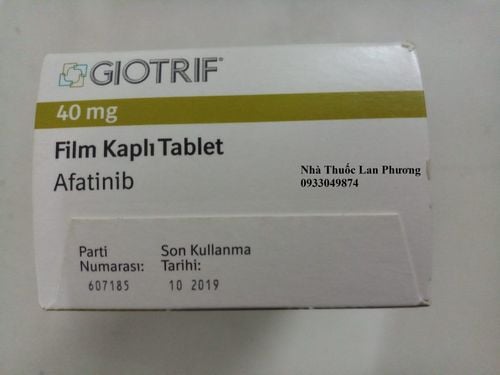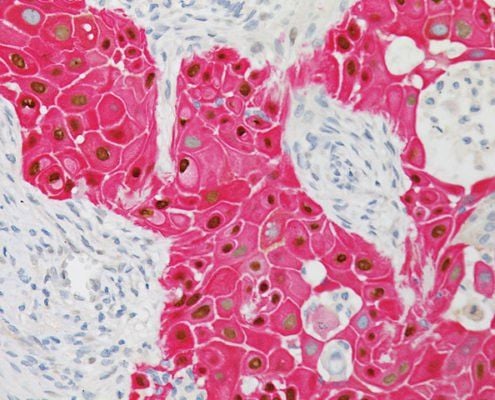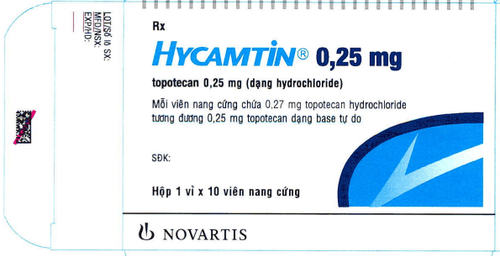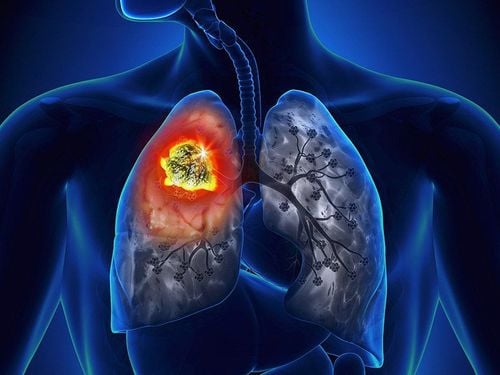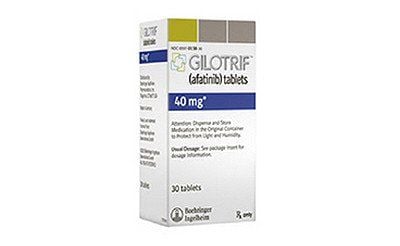This is an automatically translated article.
Lung cancer is a dangerous disease that can claim the lives of millions of people every year. There are many different types of lung cancer and each type has different treatments, and in addition to treatment, how to live a healthy life with lung cancer is something that many people care about. Try some of the measures below to help you stay healthy with lung cancer.
1. What is lung cancer? Cancer is a disease in which cells in the body grow excessively out of control. When these cells start in the lung it is called lung cancer.
Lung cancer starts in the lungs and in later stages lung cancer metastases can reach organs such as lymph nodes or other organs in the body, close to the lungs or far away from the lungs such as the brain. Conversely, cancer from other organs can also metastasize to the lungs. When cancer cells spread from one organ to another, they are called metastatic cancer.
Lung cancer is often grouped into two main types called small cell and non-small cell cancers (including adenocarcinoma and squamous cell carcinoma). These types of lung cancer grow differently and are treated differently. Non-small cell lung cancer is more common than small cell lung cancer and has a better prognosis.
2. How long does lung cancer live? Lung cancer, like most other cancers, is divided into four stages depending on how far the cancer cells have grown. Depending on the stage, type of lung cancer, the patient's condition and treatment measures, the survival time of lung cancer can be determined.
For early-stage cancers, the 5-year survival rate is about 52%. In case cancer cells have metastasized to lymph nodes, the 5-year survival rate is 25%. With metastatic lung cancer, this rate is only about 4%. Especially for people with small cell lung cancer, they usually live 6 to 12 months if treated and if untreated, about 2 to 4 months. As such, there are many factors that help determine how long lung cancer will live. One of the important things is early detection, at the localized stage.

Giải đáp ung thư phổi sống được bao lâu?
3. What to do to stay healthy with lung cancer? Lung cancer is a serious disease, but you can still take steps to help yourself stay healthy with it. Some measures you can take include:
Be aware of your own health condition When you know what is happening with your body, you will feel like your best friend is in control of everything. than. But even so, it's not always easy to know all the details your doctor gives you. So to understand your illness in detail you should write down the questions you need to know before you see the doctor and carry them with you, remember to take notes for important information and if you can't remember. Everything the doctor says should be accompanied by a friend or relative to remember all the information.
Get proper rest Lung cancer and its treatments can both make you feel more tired than usual. So you need to monitor how you are feeling every day, or take a break if you feel tired. After getting enough rest you will have enough energy for daily activities and your body will feel better as soon as you are done with your treatment.
Nutritious diet Healthy and nutritious foods help strengthen your immune system. If you wonder what's the best food for lung cancer, it's fruits, vegetables, low-fat dairy, protein-rich foods like eggs, cheese, should provide fat through vegetable oils, whole grains and cashews. It is important to drink enough water. What about lung cancer? It is alcohol, processed foods, fried foods, fried foods and seafood such as shrimp, crab and fish should also be limited because it increases phlegm. When you eat a healthy diet, you feel better, have more energy, have fewer side effects from taking medications, lower your risk of infection, and help your body recover better. .
During the treatment you may not always feel like eating, even very anorexic, but do not skip meals. It may be a good idea to see a dietitian who can help you find the best foods to fuel your body.
Try to be as active as possible. Just with the consent of your doctor, try to exercise your body according to your health status every day. Choose from activities such as cycling, swimming, yoga or walking, physical activities that can help boost energy, reduce stress and anxiety, increase appetite, and uplift mood. .
Take care of your own feelings Finding out you have lung cancer is a huge thing and it will change your life. If you had a history of depression or experienced a lot of stress in your previous life, you are more likely to experience very negative emotions when you are diagnosed with cancer and may not accept it. Facing your illness will help with treatment, talk to a friend or medical professional about how you're feeling. In some cases, treatment for emotional problems is also needed.

Nghỉ ngơi hợp lý để sống khỏe với bệnh ung thư phổi
Keep a healthy lifestyle Bad habits like smoking, drinking, overeating and not exercising are not good for your quality of life and you should change that. Taking care of your body with good healthy habits will help you recover better after treatment and can maintain a longer life.
Monitor side effects of treatment There are different treatments for lung cancer. Not all medications affect people in the same way, but some of the most common reactions that can occur with treatment include feeling tired, being more susceptible to infection, pain, and feeling sick. feeling nauseous and vomiting, loss of appetite, anemia, edema, sadness...maybe symptoms are normal side effects that may be encountered. But it is possible that some of the symptoms are complications during treatment. So, let your doctor know about any side effects you experience as soon as possible. Certain medications can calm many of them. Lifestyle changes can also help you feel better.
Stay in touch with your treating doctor There should be ways to get in touch with your treating doctor so that he can be informed of what is happening to you. Timely follow-up to be able to be fully examined and at the right time to determine the next treatment steps.
Can connect with support groups or people with the same disease Lung cancer is the second most common type of cancer (not counting skin cancer). Look for support groups and online resources that can help you overcome negative emotions or can put you in touch with others who are also living with the illness. These support groups are often knowledgeable about lung cancer, and they can provide answers to your questions, helping you to feel that you are not alone.
Lung cancer is a dangerous disease, but if detected and treated early, the 5-year survival rate is over 50%. In addition, when you are sick, you can combine the above measures to help yourself live a happier and healthier life.
Please dial HOTLINE for more information or register for an appointment HERE. Download MyVinmec app to make appointments faster and to manage your bookings easily.
References: webmd.com, cdc.gov




